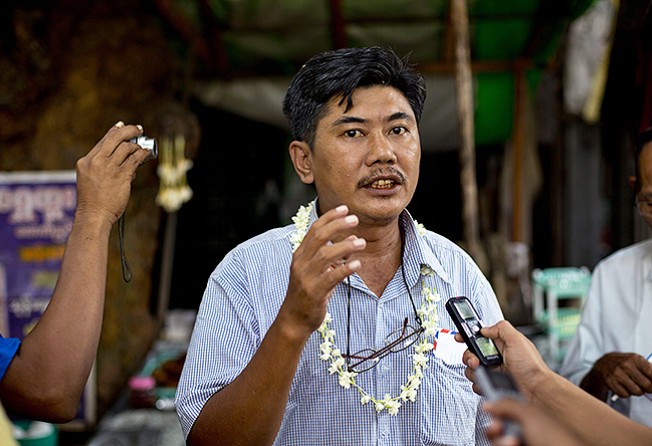Myanmar releases 41 political prisoners in government amnesty

Myanmar freed 41 political detainees on Wednesday, a government spokesman said, bringing the country close to fulfilling a pledge by President Thein Sein to release all prisoners of conscience by the end of the year.
The amnesty, announced by government spokesman Ye Htut on his Facebook page, was one of at least a dozen the reformist, quasi-civilian government has granted since taking over in March 2011 from a military leadership.
The release leaves about 40 political detainees in prison, according to estimates by the Assistance Association for Political Prisoners in Myanmar. The organisation says another 230 people still face charges over their political activities.
During the military’s final years in power, as many as 2,500 people, including activists, journalists, politicians and even comedians, were under detention. Many were subjected to torture.
A committee appointed by Thein Sein assesses the cases of remaining detainees and provides him with a list of those determined to be genuine political prisoners recommended for release.
Among those released on Wednesday was D Nyein Lin, according to a list provided to Reuters by a senior government official. D Nyein Lin was jailed last week for leading a protest in the commercial capital, Yangon, against the controversial Letpadaung copper mine near Monywa, 760 kilometres to the north.
D Nyein Lin was released from Insein Prison in Yangon, which housed most political detainees. Others were freed from 11 institutions around the country, said the official, who asked not to be identified as he was not authorised to speak to media.
As with previous amnesties, Wednesday’s release coincided with diplomatic events.
The announcement was made a day before Thein Sein was to travel to Tokyo for a meeting between Japan and the Association of Southeast Asian Nations (Asean), a 10-nation political and economic bloc, and hours before regional leaders gathered in the capital, Naypyitaw, for the opening of the Southeast Asian Games.
Myanmar last hosted a regional sporting event in 1969, when the country was gripped by a socialist military dictatorship. This year’s games are widely considered symbolic of Myanmar’s opening up after 49 years of military rule, as well as a logistical dress rehearsal for its chairmanship of Asean, with the country due to host a series of summits over the next year.